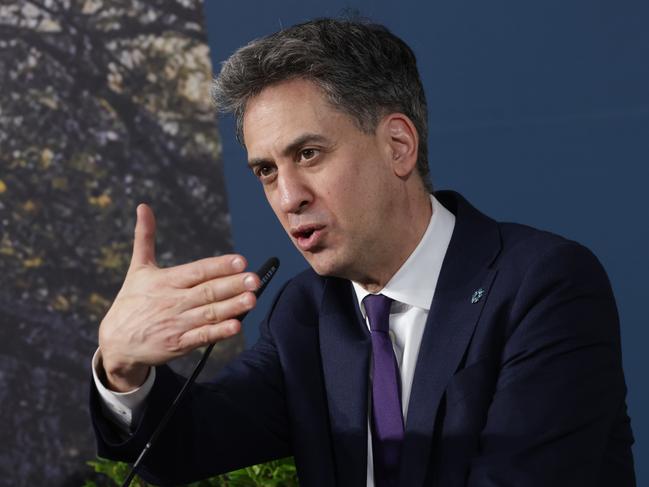UK admits Aussie nuke pact list mistake
The British government has conceded that Australia was mistakenly included on a list of countries that were expected to sign up to a US-UK civil nuclear deal.
National
Don't miss out on the headlines from National. Followed categories will be added to My News.
The British government has admitted that Australia was mistakenly included on a list of countries that were expected to sign up to a US-UK civil nuclear deal.
The Albanese government denied media reports on Tuesday that it would join the US and the UK to join a global movement to “speed up the spread of civilian nuclear energy plants to cut carbon emissions and provide more secure power to industry.”’
The British Government had earlier said Australia was “expected” to join the UK and the US in signing an agreement to speed up the development of civilian nuclear energy.
However, mention of Australia in the media release was later removed.
Speaking at COP 29 in Baku, Azerbaijan, UK Energy Secretary Ed Miliband said his country was “reversing a legacy of no nuclear being delivered and moving forward with its advanced nuclear-reactor program”.

Australia’s Climate Change Minister, Chris Bowen, who is in Baku, later released a statement through his office.
“Australia is not signing this agreement as we do not have a nuclear energy industry. Nuclear power is outlawed in Australia. We will continue to work closely with our international partners to reach Net Zero,” the statement said.
“Our international partners understand that Australia’s abundance of renewable energy resources makes nuclear power, including nuclear power through small modular reactors, an unviable option for inclusion in our energy mix for decarbonisation efforts.
“Put simply, London has only 1,633 hours of sunshine hours in an average year. By comparison, Australia’s least sunny capital city is Melbourne with 2,362, while our sunniest capital city is Perth has 3,229,” the statement continued.
“We will remain as observers to this agreement to continue to support our scientists in other nuclear research fields.”
The UK and US signed the new deal at the COP29 meeting in Baku, Azerbaijan, The Australian reported.

The pact aims “to speed up the deployment of cutting-edge nuclear technology to help decarbonise industry and boost energy security”.
Mr Miliband and US Deputy Secretary of Energy David Turk agreed to the plan, which aims to “help pool together billions of pounds worth of nuclear research and development – including the world’s leading academic institutions and nuclear innovators”.
The move is an extension of the pro-nuclear agreement signed by 31 nations at COP28 in 2023 to triple nuclear energy capacity globally by 2050, The Australian reports.
The UK-US agreement says “new technologies such as advanced modular reactors can help decarbonise heavy industry such as aviation fuel, hydrogen or advanced steel production, by providing low-carbon heat and power”.
It came as the Labor Government attacked the Coalition’s nuclear policy claiming its as too expensive and risky.
Acting Prime Minister Richard Marles told Parliament that most nations were working on renewable energy.
Mr Miliband said nuclear would play “a vital role in our clean energy future.” He said the UK was “reversing a legacy of no nuclear being delivered”.
The new agreement will come into force from March 1, 2025.





